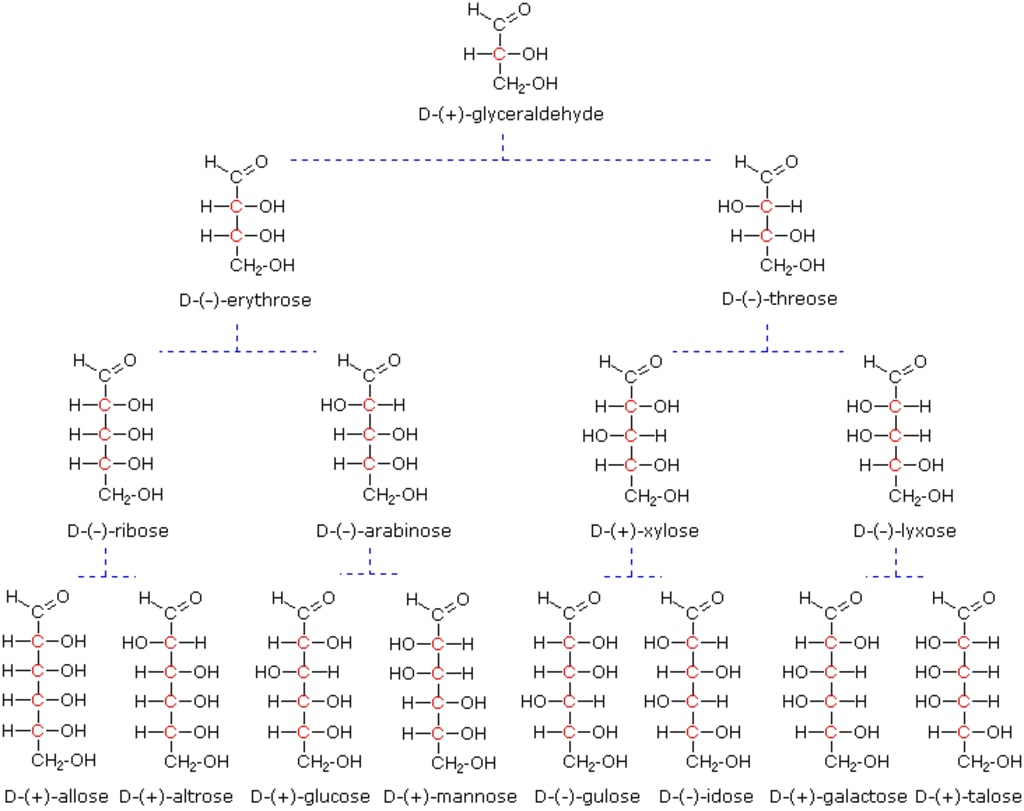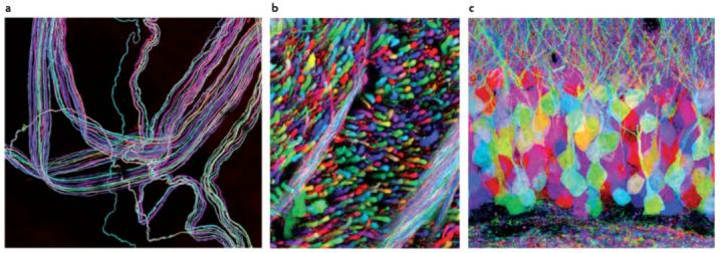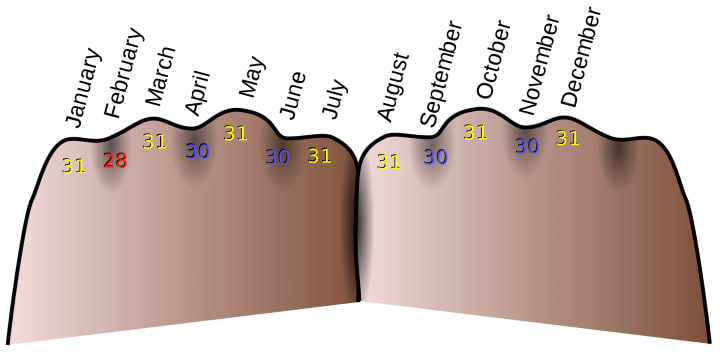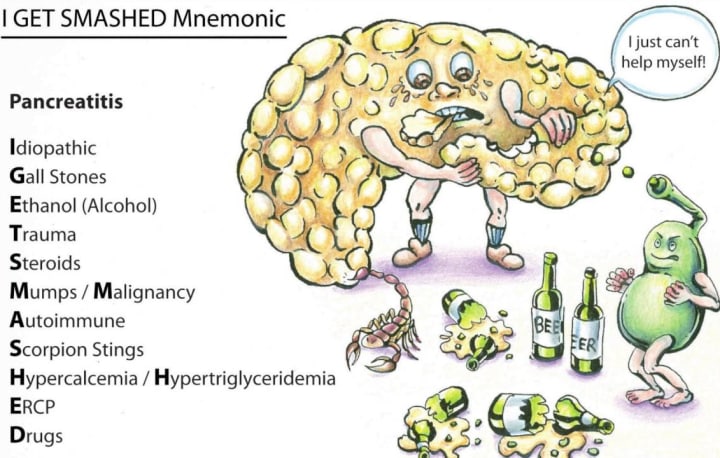A Cemetery Of Carbohydrates
an impromptu mini-essay on mnemonics

I'm not going to talk about carbs, burning calories, and choosing the right diet. I'm not an expert in the field (and as of today, I couldn't care less about the subject). Although I diligently burn my calories every day. As well as replenish their stocks by munching on whatever my void deems edible. My body feels just fine, at least in this department (stomach compartment). I am grateful for my well-functioning metabolic processes, stressful life, good habits, bad habits, and low income. Hell yeah!
I would like to talk about mnemonics instead. Already see the connection between the title and the subject, do you? By the way, do these crisscross thingies in the cover image remind you of cemeteries at least a tiny bit? I absolutely accidentally recalled them and how we used to call this schematic representation of their structures a "cemetery." These are carbohydrates. More precisely, monosaccharides. Even more precisely, aldoses. Do you see what I'm trying to do here? Exactly, scare off my potential readers! Vertically neighboring aldose molecules are called homologs. Horizontal neighbors are isomers. Well, okay, I shut up. I'm way too off-topic.
I would say this scheme looks more like a family tree. But whatever. The 'Cemetery' sounds more mysterious. The message I want to deliver is that I used to know all the names of those guys and who was who, could draw their structures, and was quite proud of it. Actually, maybe I still can. Haven't checked. Interesting how our memory works!
A random fact: the brain volume in songbirds fluctuates seasonally, and it is larger in spring, during breeding season. There's also certain evidence present of adult neurogenesis in humans. Neuroscience is fascinating. Unfortunately, I do not know much about it. Just a few random facts. Another example: some while ago, researchers in the field developed a technique for colorfully labeling mouse brain neurons with the help of a bunch of fluorescent proteins so that each individual neuron could be distinguished and their entanglement and connections could be mapped. They call this technique 'Brainbow'. Sick [in their heads], huh?

Back to mnemonics. According to credible sources, a 'mnemonic' is a set of strategies/techniques that can help one remember things. Different things. Good, bad, ugly things. Pretty much anything: starting with your birthday date and finishing with the names of all 95 moons of Jupyter. There are different mnemonic devices (or methods or types). Time to classify! Or is it classified? I don't think so. So here they go, to name a few:
- visualization mnemonics;
- rhyming;
- note organization mnemonics;
- acronyms and acrostics (yeah, acrostics can be used not only for getting distracted but also to carry some important pieces of information).
- song mnemonics;
- etc.
I think those are pretty self-explanatory. Few quick examples:
If you need to remember how many days are there in each month, clench your fists and kick some asses, put them together, and take a look at your knuckles.

F*ckin' February! But otherwise, the technique works well. Been using it myself sometimes.
Another well-known example is a way to remember in which order colors appear in a [b]rainbow. "Richard Of York Gave Battles In Vain." Richard is dead, but we will remember him for generations to come.
Returning to the carbohydrates. Allose—altrose—glucose—mannose—gulose—idose—galactose—talose. Pretty sure you've heard of glucose and galactose. But their kin art numerous, their gang is sweet. The phrase "All altruists gladly make gum in gallon tanks" puts everything together and makes things much easier to memorize. I know even a sillier mnemonic for this series of aldohexoses, but it's not in English, and upon translation, it loses its mneomonity.
Another fun mnemonic I remember from my college years is about an ox and red cat.
Electrode processes and their confusing terminology are some of the worst things that can happen to a person in their life. But this mnemographic is fun. For reference: 'red cat' stays for the "reduction processes occur on the cathode", and 'an ox' translates into "oxidation processes happen on the anode."
One jaw-dropping mnemonic I came across several weeks ago is a poem written by M. Keith based on Edgar Allan Poe's "The Raven." The poem reconstructs 740 digits of π (the number that goes 3.14... well, you know how it goes). Here it's not the first letters of words, but the words themselves, or rather their length, help memorize the sequence (who would want to do that though?).
But my favorite mnemonic device is making rhymes. You want to increase your vocabulary? Make the words rhyme! I used to do it when I was learning English. I still am learning I guess. I still enjoy rhyming. You want to learn by heart a poem you like? Make it rhyme! It already rhymes on its own? Ah, what a pity! Rerhyme it, maybe. Rewrite it, then realize what you've written is rubbish, get angry, and burn your scribbles.
That's it. I shared a bit of what's on my mind. But tomorrow I have a big day. I'm going to infect my cells with a virus. First amendment: not my cells but an insect cell culture (established from ovarian tissue of the fall armyworm (it's a moth actually, a freaking moth!)). Second amendment: it's not an amendment but more of a clarification: the virus I'm going to use is not infectious to mammals (humans included), only to insects. That is, as long as you're not a Spiderman, there's nothing to worry about. So I'm not worried about it. I just wanted to make this silly joke very badly. Have a nice day!

About the Creator
Enjoyed the story? Support the Creator.
Subscribe for free to receive all their stories in your feed. You could also pledge your support or give them a one-off tip, letting them know you appreciate their work.
Reader insights
Outstanding
Excellent work. Looking forward to reading more!
Top insights
Compelling and original writing
Creative use of language & vocab
Expert insights and opinions
Arguments were carefully researched and presented
Eye opening
Niche topic & fresh perspectives
On-point and relevant
Writing reflected the title & theme






Comments (4)
There aren't many words in English that start with "mn". So this gets my stamp of approval. Not for the first time, I wonder, with not a little envy, what a firework show it must be inside your brain.
Lol, I've been using these without knowing their called mnemonics! So I definitely learned something new today! Thank you so much for sharing this!
Mnemonics have rarely been good for my brain, alas, they've always seemed to get me sidetracked. Although, I think you may have just proved pretty soundly that's common to many! I love your turn of phrase and zany shifts of subject, but underneath it all I learned a lot about stuff outside my zone expertise. Cemetery, family tree? As long as you rhyme it. A very carb heavy and brainy adventure. You won't scare me away from reading!
Fascinating, Andrei. Now what were you saying?